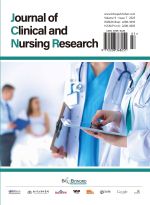Abstract
Objective: To analyze the effect of pharmacist-led rational drug use management of antibiotics during the perioperative period in gynecology. Methods: Two hundred patients who underwent gynecological surgery between March 2023 and December 2023 were selected and randomly divided into two groups. In the experimental group, the pharmacist led the medication management during the perioperative use of antibiotics, while the control group received routine antibiotic management. The management effects were compared between the two groups. Results: The irrational drug use rate, the incidence of adverse drug reactions, the cost of antibiotics, and the incidence of postoperative infection were all lower in the experimental group compared to the control group (P < 0.05). Conclusion: Implementing pharmacist-led medication management during the perioperative period of gynecological surgery can prevent irrational drug use, reduce adverse drug reactions, control drug costs, and lower the risk of postoperative infection.
References
Li F, Gan M, Wang W, et al, 2022, The Impact of Clinical Pharmacist-Led Antimicrobial Drug Management Mode on Rational Drug Use During Perioperative Period in Gynecology. Journal of Clinical Drug Therapy, 20(6): 85–88.
Wang K, Zheng D, Sun Y, et al, 2021, Construction and Practice of Pharmaceutical Care Model Based on the Concept of Enhanced Recovery After Surgery in Perioperative Period of Gynecologic Malignancies. China Journal of Pharmaceutical Sciences, 30(10): 12–16.
Jin Y, Cui X, Wang S, et al, 2022, Pharmaceutical Practice of Clinical Pharmacists Cooperating With Gynecologists in Outpatient Management of Patients With Menopause. Central South Pharmacy, 20(10): 2436–2439.
Zhi Z, 2020, Analysis of Intervention Effect of Prophylactic Medication During Perioperative Period of Type I Incision in Gynecology. Xinjiang Medical Journal, 50(2): 199–201.
Yang Y, Huang J, Zhang Z, et al, 2021, Evaluation of Antimicrobial Drug Use During Perioperative Period in Gynecology Based on Guidelines and Consensus. Chinese Journal of Hospital Pharmacy, 41(5): 437–441, 449.
Li H, Zhang G, Xue X, et al, 2020, Practice and Research of Pharmaceutical Services Carried Out by Gynecological Clinical Pharmacists. Clinical Medical Research and Practice, 5(7): 13–14, 18.
Huang T, Wang X, 2022, Pharmaceutical Care Provided by Clinical Pharmacists for Patients With Acute Pulmonary Embolism After Gynecological Surgery. Shanghai Medical & Pharmaceutical Journal, 43(3): 73–76.
Wang Y, Li N, Sun Y, et al, 2021, Practical Analysis of Clinical Pharmacists’ Participation in Drug Therapy for Gynecologic Tumors. Chinese Pharmaceutical Journal, 56(2): 147–152.
Huang X, Wang L, Sun L, 2021, Comparison of Safety and Economy Between Oral and Intravenous Iron Supplementation Under the Guidance of Clinical Pharmacists. China Modern Medicine, 28(7): 133–136.
Lei W, Zhang M, Ma X, et al, 2025, Establishment and Evaluation of a Clinical Pharmacist-Led Hierarchical Analgesic Management Model After Gynecological Surgery. Central South Pharmacy, 23(4): 1153–1159.
Leng Z, Chen J, Jin Y, et al, 2024, Analysis of the Effect of Clinical Pharmacists’ Participation in Medication Management of Gynecological Clinical Pathways Under the Diagnosis-Related Group Payment Model. China Journal of Pharmaceutical Sciences, 33(9): 37–39.
Ji Z, Zhang Z, 2020, Methods and Effects Observation of Pharmaceutical Services Carried Out by Clinical Pharmacists in Gynecology. World Latest Medicine Information (Electronic Version), 20(97): 242–243.
